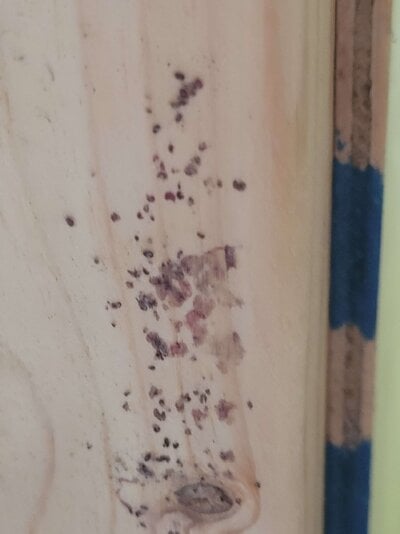Lord von Cluck
In the Brooder
- Sep 16, 2023
- 6
- 24
- 23
Good evening everybody,
An important preface: We have reached out to almost every veterinarian in our state (we live in the US). Almost all of them are either completely booked or have stopped seeing poultry altogether. We were able to get an unofficial diagnosis from an acquaintance who is a vet and keeps backyard chickens, she suggested that it might be Infectious Coryza (more on that below) and suggested that we start treating with whatever antibiotics we could find at our local TSC.
I feel like this might be a loaded question, but I want to get some advice concerning my flock suffering a myriad of symptoms. I have a mixed flock (20 chickens) mostly ranging from 4-5 months and a single adult Bantam of laying age. Approximately one week ago, one of my roosters suddenly showed the following symptoms: Gasping for breath, wheezing, gurgling, lethargy, foamy eyes, foul-smelling head area, and green diarrhea. We immediately quarantined him from the rest of the flock and cleaned the feeders and waterers (we also sanitized the coop). Unfortunately, he passed away within two days. We brought him into our university for a necropsy the day of. After he passed, over half of our flock started showing symptoms. We attempted to quarantine them but it reached the point where we simply didn't have the space to quarantine them. Further, at this point, all but one member of our flock is displaying minor symptoms (sneezing or wheezing), and we lost another member of the flock (another Roo) who seemed to be improving dramatically (no wheezing, gasping, etc).
Per the advice of our acquaintance's unofficial diagnosis, we've been treating our birds with LA-200 (Oxytetracycline) orally (0.10ml/lb twice daily). It has yielded some results (some improved quality of life) but I have started to accept the reality that my birds will be carriers for life (assuming that it is in fact CRD) and that the health of its members is diminishing.
As mentioned before, we are awaiting final testing from the necropsy of the first bird. Avian flu testing came back negative, all that's left is a histopathy of his organs for the specific pathogens. We will make our final decision based on those findings.
My question is this, am I wrong to consider cutting my losses and learning my lessons? I am considering culling my entire flock as almost every chicken has displayed symptoms at varying levels of severity. I absolutely love my birds, but as much as I would like to dedicate myself to helping them live their lives, I have to acknowledge that the symptoms will arise if they get stressed out. In part, it would be a matter of ethical mercy, but it would also be a matter of logistical convenience (as we cannot establish a vet-client-patient relationship within our state on account of the preface). If it is a respiratory disease, culling and sanitizing the coop would give us a chance to prepare for a future flock and allow us to incorporate new chickens with significantly less risk.
Another question that I have is how should I approach our single asymptomatic adult hen? She is a small bantam who has been living with the other chickens throughout this ordeal. We feel like it is deluded to even imagine that she is not a carrier by this point. Still, I don't know for sure if she is so I am looking for some opinions regarding whether it's worth the risk to attempt to save her from the situation.
I appreciate any advice or information that can be provided.
P.S. I believe that the infection started from introducing new chickens into our flock from a farm that wasn't keeping them in the best conditions. It was a rookie mistake and I'm aware now that this choice had long-term consequences for my birds. The alternative is that we do live in the woods and wild birds are plentiful around here. We attempt to keep our run sanitary, but it's definitely possible for contamination to slip under our noses.
An important preface: We have reached out to almost every veterinarian in our state (we live in the US). Almost all of them are either completely booked or have stopped seeing poultry altogether. We were able to get an unofficial diagnosis from an acquaintance who is a vet and keeps backyard chickens, she suggested that it might be Infectious Coryza (more on that below) and suggested that we start treating with whatever antibiotics we could find at our local TSC.
I feel like this might be a loaded question, but I want to get some advice concerning my flock suffering a myriad of symptoms. I have a mixed flock (20 chickens) mostly ranging from 4-5 months and a single adult Bantam of laying age. Approximately one week ago, one of my roosters suddenly showed the following symptoms: Gasping for breath, wheezing, gurgling, lethargy, foamy eyes, foul-smelling head area, and green diarrhea. We immediately quarantined him from the rest of the flock and cleaned the feeders and waterers (we also sanitized the coop). Unfortunately, he passed away within two days. We brought him into our university for a necropsy the day of. After he passed, over half of our flock started showing symptoms. We attempted to quarantine them but it reached the point where we simply didn't have the space to quarantine them. Further, at this point, all but one member of our flock is displaying minor symptoms (sneezing or wheezing), and we lost another member of the flock (another Roo) who seemed to be improving dramatically (no wheezing, gasping, etc).
Per the advice of our acquaintance's unofficial diagnosis, we've been treating our birds with LA-200 (Oxytetracycline) orally (0.10ml/lb twice daily). It has yielded some results (some improved quality of life) but I have started to accept the reality that my birds will be carriers for life (assuming that it is in fact CRD) and that the health of its members is diminishing.
As mentioned before, we are awaiting final testing from the necropsy of the first bird. Avian flu testing came back negative, all that's left is a histopathy of his organs for the specific pathogens. We will make our final decision based on those findings.
My question is this, am I wrong to consider cutting my losses and learning my lessons? I am considering culling my entire flock as almost every chicken has displayed symptoms at varying levels of severity. I absolutely love my birds, but as much as I would like to dedicate myself to helping them live their lives, I have to acknowledge that the symptoms will arise if they get stressed out. In part, it would be a matter of ethical mercy, but it would also be a matter of logistical convenience (as we cannot establish a vet-client-patient relationship within our state on account of the preface). If it is a respiratory disease, culling and sanitizing the coop would give us a chance to prepare for a future flock and allow us to incorporate new chickens with significantly less risk.
Another question that I have is how should I approach our single asymptomatic adult hen? She is a small bantam who has been living with the other chickens throughout this ordeal. We feel like it is deluded to even imagine that she is not a carrier by this point. Still, I don't know for sure if she is so I am looking for some opinions regarding whether it's worth the risk to attempt to save her from the situation.
I appreciate any advice or information that can be provided.
P.S. I believe that the infection started from introducing new chickens into our flock from a farm that wasn't keeping them in the best conditions. It was a rookie mistake and I'm aware now that this choice had long-term consequences for my birds. The alternative is that we do live in the woods and wild birds are plentiful around here. We attempt to keep our run sanitary, but it's definitely possible for contamination to slip under our noses.








